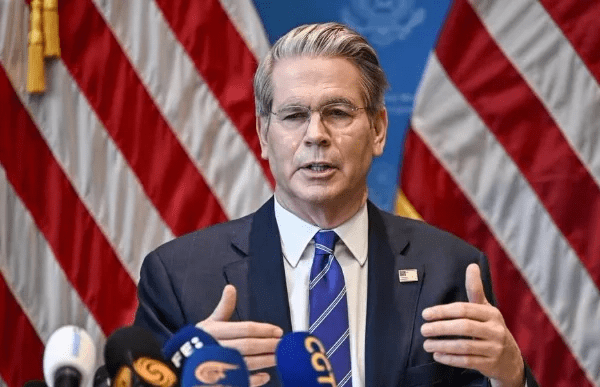This week, negotiations between the U.S. and China have once again begun, and this consultation, conducted under global scrutiny, has truly captured the attention of the world. According to Bloomberg News, U.S. Treasury Secretary Bessette left London the evening after the second day of talks to return to Washington for a congressional hearing.
Meanwhile, U.S. Secretary of Commerce Wilbur Ross and Trade Representative Robert Lighthizer remain in London to continue in-depth negotiations with China.
To be honest, under normal circumstances, hearings are usually well arranged in advance. Bessette probably did not expect that the negotiations with China would take so long. When leaving, he told the media: 'We had two days of productive discussions, and the talks are still ongoing.'
However, we do not rule out that all of this is a strategic smokescreen from the U.S.—creating a seemingly optimistic public opinion atmosphere to exert pressure, hoping to make China swallow their conditions at the negotiating table. If the result is unsatisfactory, they will unceremoniously shift the blame onto China, accusing it of 'disrupting'.
On the other hand, Ross's statements to the media are also quite thought-provoking. He stated, 'I believe the talks are going very smoothly. We have invested a lot of time and energy, and everyone is working hard.' The market seems to have received an uplifting signal, and the U.S. stock market responded with a rise.
This reflects, from the side, the Trump administration's eagerness to showcase its decisiveness and capability in handling relations with China domestically, in order to soothe market and public sentiment.
However, from this, we can also see that Ross's statements carry a hint of impatience and uncertainty, as he himself has drawn an unclear conclusion about the negotiations.
This also indicates that China has shown remarkable composure in negotiations, demonstrating extraordinary patience and striving to clarify all contentious points. On major issues, China's phrase 'take it slow' clearly indicates that it has mastered the initiative in these negotiations.
As is well known, the highlight of this negotiation is undoubtedly the issue of chip and rare earth export control. The U.S. side's goals are quite clear: they hope China will speed up the issuing of rare earth export licenses.
In exchange, the U.S. will lift a series of new export control measures against China, including chip design software, aircraft engines, ethane, and nuclear materials.
Clearly, China's 'rare earth card' has left the U.S. at a loss. After all, in recent years, the U.S. reliance on China's rare earths has forced this superpower to bow its head.
Imagine if China were to angrily stop all rare earth supplies to the U.S.; that would be a disaster for America's defense and technology industries. Rare earths, this truly 'trump card', have seemingly become a secret weapon in China's hands, with the U.S. having almost no countermeasures.
However, when assessing the U.S. strategy in this negotiation, we must not overlook the 'small calculations' behind them. The U.S. is clearly not acting out of respect for China's interests or the maintenance of the international trading system, but rather to maximize its own interests. In their words, it's 'America First.'
Additionally, this meeting also sent U.S. Secretary of Commerce Ross, which indirectly indicates the Trump administration's urgent desire for China to resume rare earth exports.
Trump revealed to reporters at the White House that he received 'positive feedback' about the negotiations. He stated, 'Our negotiations with China are progressing well, but China is not easy to deal with.'
It must be said that Trump's evaluation is not without basis. China has consistently maintained a prudent attitude on trade issues, demonstrating a resilient position, which makes Trump only anxious on the sidelines of the negotiations, yet helpless.
Honestly, since the U.S. sat down at the negotiation table, they have had certain expectations for this negotiation. According to convention, they might try to use fabricated chips as bargaining tools to pressure China into concessions in certain areas.
However, when they finally sat down face to face, their small calculations clearly did not work. China insisted on its principles and demanded equal dialogue, making the U.S. side's wish for an easy deal extremely difficult.
As for the U.S. side's desire to exchange a reduction in sanctions against China for the relaxation of rare earth controls, the Ministry of Commerce of China has clearly stated that China's export ban on rare earths conforms to international practices and will strengthen compliance application management while considering the reasonable needs of various countries.
This statement conveys a clear message: China considers not only national security but also the demands of the international civilian market. If the U.S. truly wants more rare earths, it must submit a compliant application according to procedures, rather than rely on pressure to force China to make concessions.
